

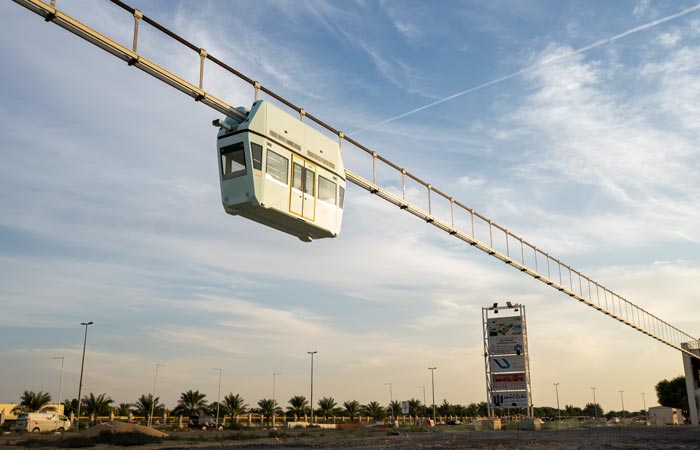
India, Bangladesh, Indonesia, Pakistan—the populations of these and many other tropical countries are growing rapidly. While the number of vehicles is rising, road infrastructure often fails to keep pace. In tropical regions, this issue is further compounded by challenges like extreme heat, flooding, and heavy tropical downpours… However, the Karat complex, a solution developed by Unitsky String Technologies Inc., offers a way to ensure comfortable and safe transportation, even under these extreme conditions.
Not all vehicles are safe when temperatures soar to extreme levels. In India this June, for instance, air temperatures reached 40°C, but with high humidity, it felt like 50°C. According to Faisal Edhi, head of the Edhi Foundation, which operates the country’s largest ambulance service, the number of heat-related casualties in the first week of the month reached 600, with motorists and commuters stuck in traffic jams being the most common victims.
Motor vehicles in India account for 86% of the country's passenger transportation and 67% of cargo turnover. However, not all vehicles are equipped with air conditioning, and many, such as tuk-tuks, are particularly popular but leave passengers vulnerable to extreme heat, especially during traffic jams.
The 25-seat U4-212 Karat uBus offers a solution. Designed for high-temperature environments, it features an automatic climate control system with increased capacity, maintaining a comfortable cabin temperature even when outside temperatures reach +55°C. Importantly, the system is redundant—if one part of the microclimate system fails, the other continues to ensure passengers' comfort inside the uPod.
UST Inc. engineers conducted preliminary tests in a climate chamber at a temperature of +60°C with 95% humidity. During the tests, the vehicle was operated under load with all systems running: cooling, climate control, hydraulic, electrical, control systems, as well as radars, sensors, readers, multimedia, and others. Despite the extreme conditions, the powerful climate system managed to cool the cabin down to a comfortable 15°C, even with an external temperature of +60°C in the chamber.
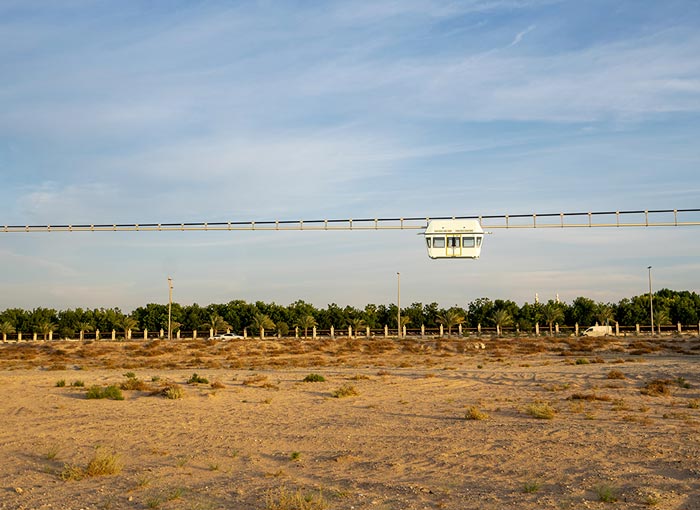
Most of Brazil is located in the tropical zone. Across the country, with the exception of the northeastern regions, there is a significant amount of rainfall, typically exceeding 1,000 mm per year. Rainfall is particularly abundant in the eastern and central regions of Brazil, where annual precipitation often exceeds 2,000 mm.
Brazil's road network spans two million kilometers, but only about 10% of these roads are paved. The rest are dirt roads, which become flooded and difficult, if not impossible, to navigate during tropical downpours.
However, by building a second level transport system, this issue, which paralyzes traffic movement, can be resolved. Additionally, all components of the Karat uPod are selected based on the climatic conditions of the region where it will be used. The paintwork, rubber elements, and all exterior parts are designed to withstand the abrasive and aggressive environmental conditions.
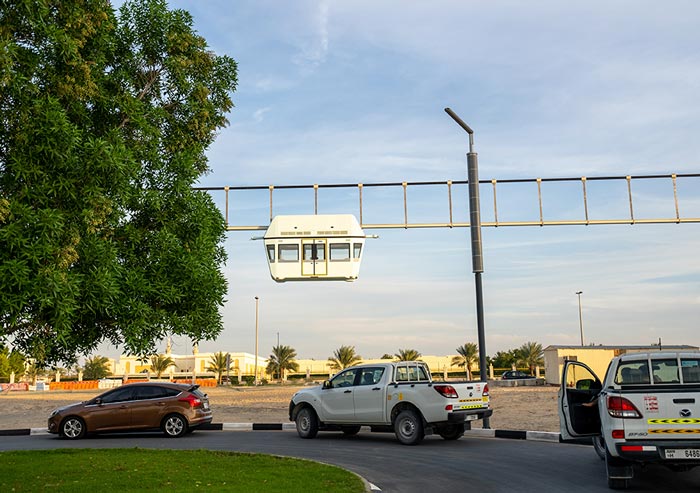
Every year, Indonesia experiences more than 1,000 earthquakes of varying magnitudes, from minor tremors to major quakes. One of the largest occurred on November 21, 2022, in West Java province, where 252 people lost their lives, 31 were reported missing, and at least 377 were injured. Transportation networks were paralyzed as a result.
The string rail overpass is designed to withstand earthquakes. To ensure the stability of the supporting structures against external shocks, special types of foundations are used to absorb vibrations, such as the floating pile foundation. In addition, special sand is used in the supporting structures for vibration damping, and vibration dampers are installed, which operate in counter-phase to the seismic activity.
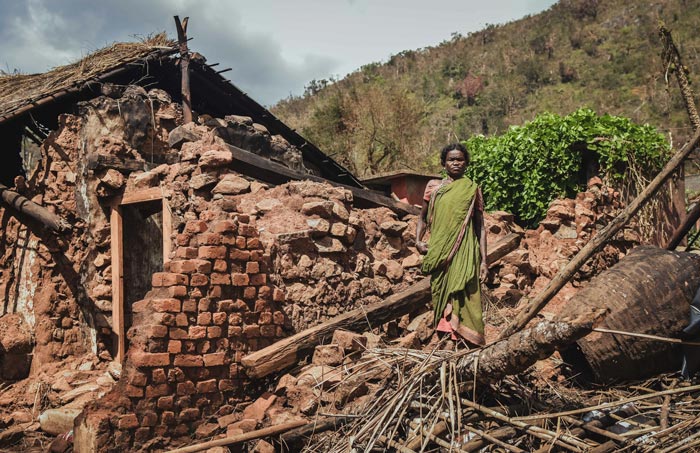
In addition to climate issues, traffic congestion is a pressing problem in many tropical countries. For instance, in Indonesia, a traffic jam once lasted 35 hours, with drivers stuck on the highway from Jakarta to Tegal during an intense heatwave.
In Brazil, traffic jams can extend for over 100 km. In São Paulo, a city of 20 million people, a massive traffic jam stretched 309 km in November 2013 as most residents headed to the coast to celebrate Republic Day. The Karat complex offers a solution to ease road congestion and eliminate traffic jams. Its track structure operates above ground, avoiding intersections with conventional traffic. By redistributing part of the passenger flow to the "second level", it significantly reduces congestion on the "first level". During rush hours, the number of vehicles can be adjusted to meet increased passenger demand. The uPods are capable of transporting up to 50,000 passengers per hour.
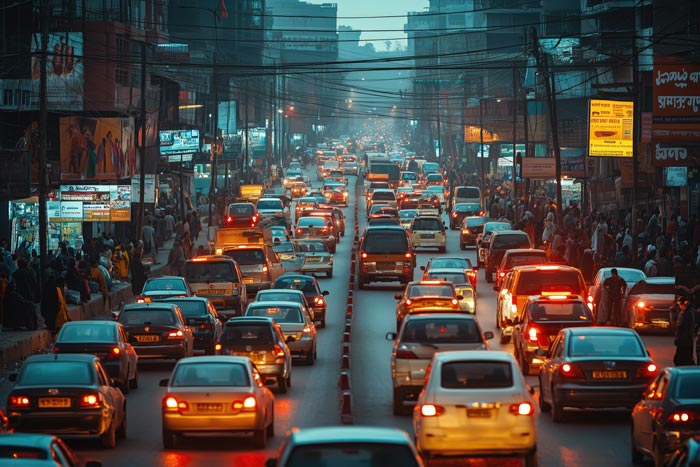
Karat is designed to withstand high temperatures, humidity, rainstorms, floods, and even earthquakes. It operates independently of traffic jams and accidents, ensuring safe and reliable transportation at speeds of up to 150 km/h. This uST complex has the potential to revolutionize the perception of comfortable and efficient transportation in tropical countries.
This form asks for your consent to allow us to use your personal data for the reasons stated below. You should only sign it if you want to give us your consent.
Who are we?
The name of the organisation asking you for consent to use your information is:
Global Transport Investments
Trident Chambers, P.O. Box 146, Road Town
Tortola
British Virgin Islands
We would like to use the following information about you:
Why would we like to use your information?
Global Transport Investments would like to send this information to company registry, inform you about its news, for refund purposes.
What will we do with your information?
We store your name, address, ID Data, date of birth into company registry. We will share your e-mail & phone number with IT Service (https://digitalcontact.com/), SMS Center (http://smsc.ru). They will add your details to their mailing list and, when it is news update, they will send you an email or sms with details. We store your credit card number for possible refunds.
How to withdraw your consent
You can withdraw the consent you are giving on this form at any time. You can do this by writing to us at the above address, emailing us at the address: [email protected] or by clicking on the unsubscribe link at the bottom of emails you receive.
This privacy notice tells you about the information we collect from you when you sign up to receive our regular newsletter via our website. In collecting this information, we are acting as a data controller and, by law, we are required to provide you with information about us, about why and how we use your data, and about the rights you have over your data.
Who are we?
We are Global Transport Investments. Our address is Trident Chambers, P.O. Box 146, Road Town, Tortola, British Virgin Islands. You can contact us by post at the above address, by email at [email protected].
We are not required to have a data protection officer, so any enquiries about our use of your personal data should be addressed to the contact details above.
What personal data do we collect?
When you subscribe to our newsletter, we ask you for your name and your email address.
Why do we collect this information?
We will use your information to send you our newsletter, which contains information about our products.
We ask for your consent to do this, and we will only send you our newsletter for as long as you continue to consent.
What will we do with your information?
Your information is stored in our database and is shared with with IT Service (https://digitalcontact.com/), SMS Center (http://smsc.ru). It is not sent outside of the Euro. We will not use the information to make any automated decisions that might affect you.
How long do we keep your information for?
Your information is kept for as long as you continue to consent to receive our newsletter.
Your rights over your information
By law, you can ask us what information we hold about you, and you can ask us to correct it if it is inaccurate.
You can also ask for it to be erased and you can ask for us to give you a copy of the information.
You can also ask us to stop using your information – the simplest way to do this is to withdraw your consent, which you can do at any time, either by clicking the unsubscribe link at the end of any newsletter, or by emailing, writing us using the contact details above.
Your right to complain
If you have a complaint about our use of your information, you can contact the Information Commissioner’s Office.
Rate and Comment
You can assess the importance of a particular publication and the level of its preparation. Share your opinion in the comments!